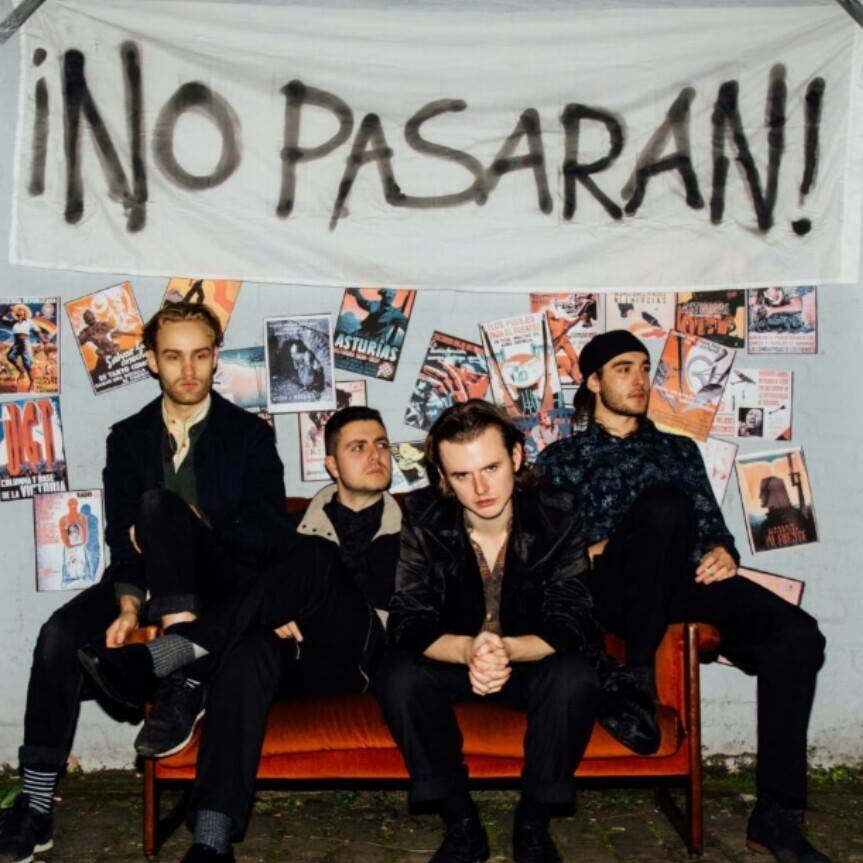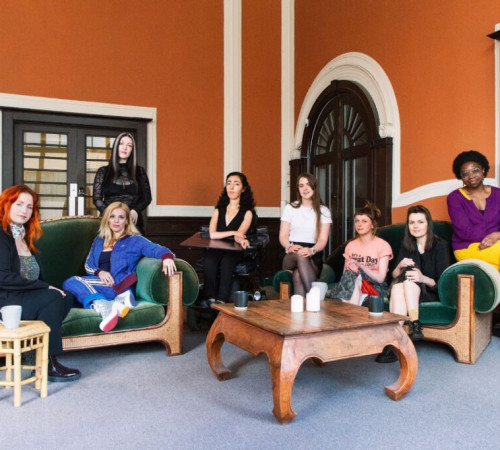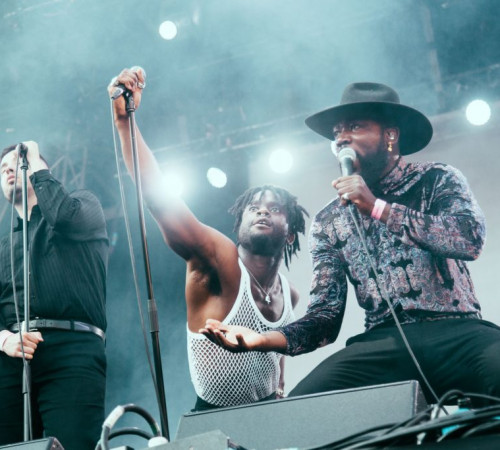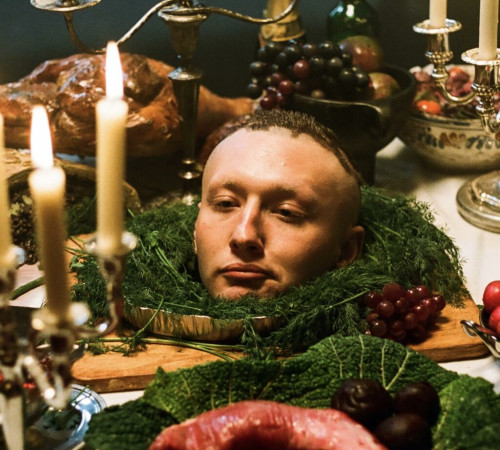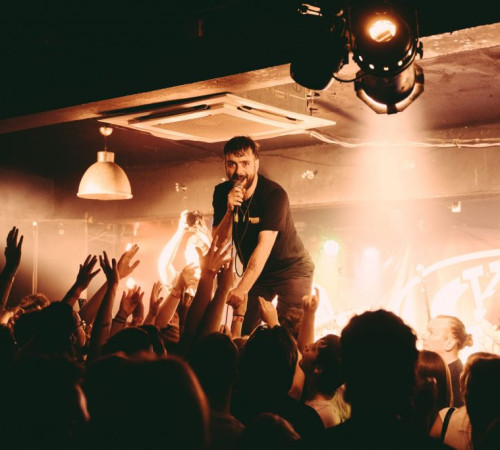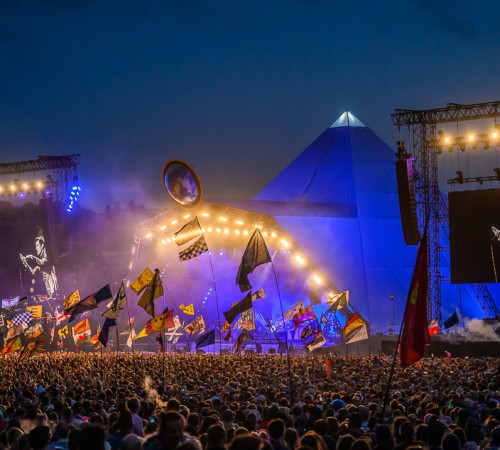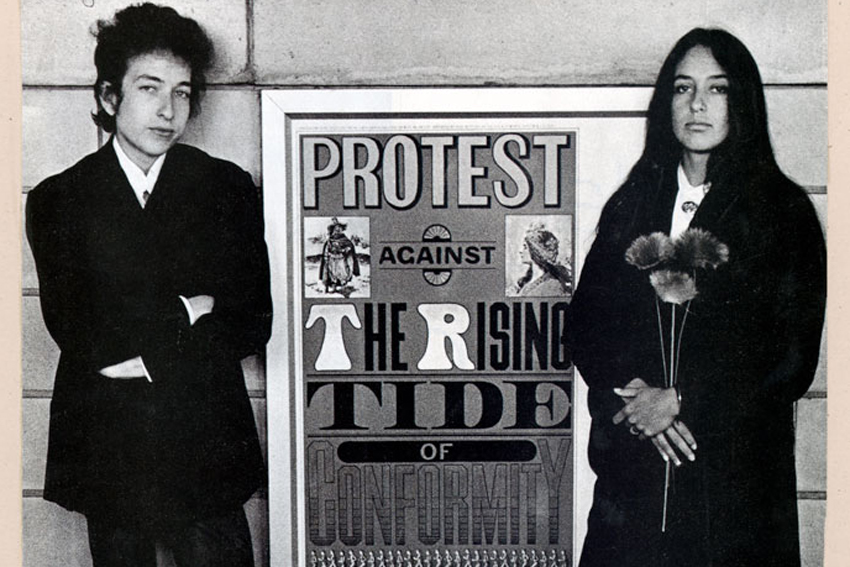 ‘MUSICIANS should stick to music’. A common sentiment heard when musicians lend their support to political cause for the sake of grandstanding. Slogans such as Hillary Clinton’s ‘I’m With Her’ have been regularly (and often blindly) adopted by high-profile figures in recent times. A sure-fire means of lending support to a cause with very little additional light being shed.
‘MUSICIANS should stick to music’. A common sentiment heard when musicians lend their support to political cause for the sake of grandstanding. Slogans such as Hillary Clinton’s ‘I’m With Her’ have been regularly (and often blindly) adopted by high-profile figures in recent times. A sure-fire means of lending support to a cause with very little additional light being shed.
Between Sleaford Mods’ detractors labelling them as ‘UKIP for liberals‘ to Muse’s recent spate of misfiring concept albums about Orwellian societies and fictional rebellions, it’s not hard to see why a musician’s opinion on political or social matters is viewed as holding little weight in today’s world.
It doesn’t and shouldn’t have to be this way. In actual fact, it could well be the case that the tide is about to change.
It was recently revealed that Bob Dylan; the poet laureate of the 60’s protest song, will be rewarded for his contributions to the world with a Nobel Prize. The aging musician has been atypically cagey about being the recipient of such an honour by the status quo. The fact that a man whose most enduring material is rooted in challenging concepts and political activism, is demonstrative of the fact that an artist with a viewpoint to spread may have to endure some criticism but may ultimately shape the world in which they live for the better.
Dylan was inspired by none other than Woody Guthrie – the seminal folk musician that famously emblazoned ‘This Machine Kills Fascists’ upon his guitar after composing ‘Talking Hitler’s Head Off Blues’ back in 1941. Dylan’s early career saw him become a figurehead for pacifism and rejecting the norm on timeless compositions such as ‘Masters Of War’, ‘Only A Pawn In Their Game’ and of course ‘The Times They Are-A Changin’. The latter, a masterful number on which Dylan makes it all too clear that the intolerance and hate-mongering ways of the past are relics of a a primitive way of thinking, would become commonplace.
Well, it’s been 52 years since he penned his ode to a new, discrimination-free world and yet we’re still besieged by injustice, prejudice and the looming threat of complete nuclear annihilation as tensions between power-hungry nations continue to increase exponentially.
Post Brexit-Britain has seen hate crimes rise by 58%, millions of refugees that are fleeing conflict and certain death continue to be treated as subhuman by foreign policies that reduce a person’s life down to little more than the semantics of so-called ‘homelands’. A man that denounced an entire race of people as ‘rapists, criminals and drug dealers’ is within touching distance of one of the world’s most coveted positions of power. Even then, Donald Trump’s opposition Hilary Clinton is arguably the lesser of two evils and has a litany of skeletons in her closet. If there were ever a time in which musicians should valiantly take a stand, defy the placating nature of this business and allow themselves to be inspired by the age-old tradition of using their voice to educate the masses, then this is most certainly it.
In the face of all of the many adversities which are being faced by people all over the world, it appears that the ‘political musician’ is becoming less of a cliched idea and is once again becoming a viable possibility.
Take the ongoing ’30 Songs, 30 Days’ campaign for instance, a project which has seen artists of varying fame and musical backgrounds uniting in solidarity against a ‘Trump-free America.’ Featuring fantastic and insightful work from artists such as Death Cab For Cutie (Million Dollar Loan), Jim James (Same Old Lie), EL VY (Are These My Jets?) and even Scotland’s own Franz Ferdinand (Demagogue), this sense of community among the world’s musicians hasn’t been replicated since a group of American figures banded together to attempt to raise awareness of the superfluousness of the Iraq War in 2003.
The notion of the world’s band’s joining forces to tackle a common monolithic enemy is not a new one and has yielded some truly inspiring events. One such case is that of the formative stages of Rock Against Racism, the movement which amalgamated musicians of all genres against the onset of the National Front in 1976. Featuring luminaries such as The Clash, The Ruts, X-Ray Spex, The Tom Robinson Band, Sham 69 and more, an open-air concert was held in Victoria Park which saw 100,000 people come together to counteract the onslaught of racist bile which was spewed by political figures such as Enoch Powell.
With Rock Against Racism forming in the wake of racism being preached on the streets of Britain and immigrants of all creeds and cultures having to live in a constant state of fear, it’s not hard to see the parallels between that era and the xenophobia-fuelled Britain which we now live within.
That’s not to say that a malaise has fell upon the entire musical community however, as many modern artists refusing to sit idly by while the world’s general populace suffers at the whim of those pulling the strings.
One area in which politically charged lyricism and conscious thoughts can regularly be found is within the confines of hip-hop, a genre that’s been used a tool to engage its listeners. Since way back when Grandmaster Flash and The Furious Five told of the horrors of the impoverished New York City projects on ‘The Message.’ Although many sneer at what’s seen as the cliched picture of mainstream hip-hop as being filled with empty-headed claims and arrogance, the genre’s leading lights such as Kendrick Lamar, Schoolboy Q, Vince Staples, Vic Mensa, Chance The Rapper, Run The Jewels and more uphold the tradition of gritty depictions of urban life being used to raise awareness.
With a particular onus placed on combatting the unlawful killings of young African American males such as Trayvon Martin, Michael Brown and countless more, these rappers and many others have consistently used their platform to put an end to the senseless violence in a way that is admirable and exemplary.
Elsewhere, this year has saw an all-star team of Public Enemy’s Chuck D, Cypress Hill’s B-Real and members of Rage Against The Machine band together to form ‘Prophets Of Rage’, a group which seeks to highlight America’s flawed system and enlighten audiences after proclaiming that ‘We can no longer stand on the sidelines of history. Dangerous times demand dangerous songs.’
That’s not to say that things aren’t beginning to improve within the UK as a rising tide of inequality and austerity begins to plague more people than ever. Examples of British artists that aren’t afraid to take firm stances on issues include the always thought-provoking Akala, Olly Alexander of Years & Years (vocal in discussing the stigmas which surround mental health issues and regularly spoken out against homophobia). Punk duo Slaves have consistently fought against ignorance over the course of their albums Are You Satisfied? and Take Control, Kate Tempest continues to address archaic policies and political inadequacy with her scathing spoken word whilst rising punks Bad Breeding set out with a manifesto of protesting ‘widening wealth gaps, the deconstruction of communities’ and ‘the apathy of the growing, marginalised majority.’
One of the most politically engaged nations in the world in recent years, Scotland’s artists are also beginning to make waves with material anchored by defiance and faith in inclusiveness. Despite recently calling it a day with his lauded outfit Hector Bizerk, it’s safe to assume that frontman Louie will continue to allow his thoughts to flow freely and inform audiences with every project he undertakes while Gerry Cinnamon, Colonel Mustard & The Dijon 5 , Loki, Stanley Odd and more are forthcoming in their social commentary and ardent beliefs.
A sterling example of an artist that never shies away from contentious issues is Declan Welsh, the poet/singer-songwriter that has continued to rise up the ranks of Scotland’s music scene while remaining unbending in his brazenly political material. Although his output is multi-faceted and also features tracks revolving around relatable topics such as nights out in Glasgow and the perils of life as a young person in this society, the East Kilbride native jumped at the chance to head to Palestine alongside the aforementioned Louie earlier this year and is an active board member at Children In Scotland. His upcoming single ‘No Parasan’ sees him draw inspiration from the Spanish Civil War in order to oppose fascism in all its forms and proudly states ‘not in our streets, not in our towns.
Not in our names. Not as we stand.’
Ultimately, that is the power of political music distilled into one small soundbite. In an era where neo-nazi bands such as Bound For Glory can book shows in Scotland and sell more than 500 tickets to a glorified hate rally masquerading as a gig, artists such as the modern proponents of socially conscious music and those that went before them are needed now more than ever. That’s not to say that music isn’t equally as effective as a tool of escapism; a brief moment in which a fan can let go of the concerns of this world and operate in a higher plain, but there’s room for both in this ever-evolving industry.
The crucial point is that any artist that feels as though it’s time to make themselves heard and voice their displeasure with the direction that the world is headed in should never feel discouraged to do so. History look backs upon those counter-culture icons of the 60’s and 70’s with fondness and admiration of their courage, let’s give the next generation of dissenting voices and advocates for change the same chance.
